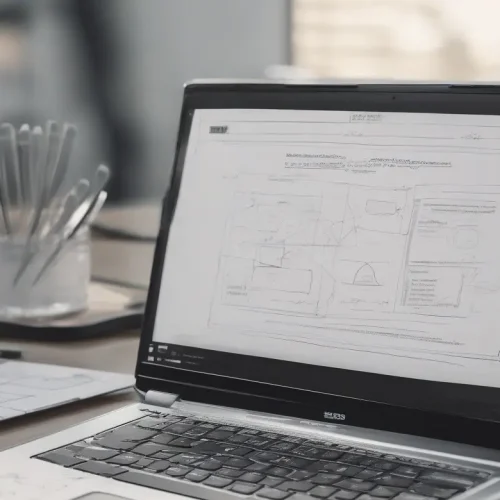Introduction: AI’s Impact on the Job Market
Artificial Intelligence (AI) is no longer a futuristic concept—it’s reshaping the job market in 2025. From advanced language models like ChatGPT to AI-driven coding and image generation, fears of job replacement are real. But is AI truly a threat, or does it open new career paths? This article explores which jobs are at risk, emerging AI-driven roles, and practical strategies to thrive in an AI-powered workforce, drawing on expert insights and recent data.
AI’s Disruption: Jobs at Risk in 2025
AI is already transforming hiring, with 73% of employers prioritizing AI-skilled talent in 2025 (source: Forbes). Roles involving repetitive tasks, data processing, or standardized communication face the highest risk of automation. A Microsoft study identifies 40 vulnerable occupations, with significant impact expected within six months, per Perplexity’s CEO.
Most At-Risk Jobs:
- Data Entry Clerks: 90% of tasks are automatable due to AI’s speed in processing structured data.
- Customer Service Representatives: Chatbots handle 80% of routine inquiries, reducing demand for level-one support.
- Telemarketers: Automated systems manage 68% of outbound calls, cutting roles significantly.
- Content Writers/Translators: Large language models generate articles and translations, impacting 60% of tasks.
- Basic Coders: Tools like Devin from Cognition automate simple coding and bug fixes, affecting entry-level developers.
- Models: AI image tools like DALL-E create realistic visuals, reducing reliance on human models for advertising.
Goldman Sachs estimates generative AI could impact 300 million jobs globally by 2030, with 40% of tasks in roles like legal analysis and bookkeeping already automatable.
The Human-AI Collaboration Model
Rather than outright replacement, AI is becoming a powerful colleague. Companies like Goldman Sachs integrate AI tools like Devin to boost productivity, not eliminate jobs. Their Chief Information Officer, Marco Argenti, emphasizes hybrid teams where AI handles repetitive tasks, freeing humans for strategic work.
Benefits of Human-AI Collaboration:
- Increased Productivity: AI automates 30–50% of repetitive tasks, saving 2–3 hours daily.
- Error Reduction: AI achieves 95% accuracy in data analysis and code reviews, surpassing human performance.
- Enhanced Creativity: Humans focus on innovation, with AI handling routine data processing.
- Better Decisions: AI provides insights from vast datasets, improving strategic planning by 20%.
This model, dubbed “middle-to-middle” by David Sacks on X, positions humans as supervisors, leveraging AI for efficiency while retaining control.
New Jobs Created by AI
Every technological revolution eliminates roles but creates new ones. The World Economic Forum predicts AI will generate 97 million new jobs by 2025, outpacing the 85 million displaced. Exciting AI-driven roles include:
- Machine Learning Engineer: Designs AI models, with salaries averaging $120,000/year.
- Data Architect: Manages data infrastructure, critical as data volumes grow 40% annually.
- AI Ethics Specialist: Ensures unbiased, transparent AI, with demand rising 25% since 2023.
- Prompt Engineer: Crafts precise AI inputs, a new role with salaries up to $100,000/year.
- Business Intelligence Engineer: Uses AI for data-driven growth strategies, boosting revenue by 15%.
- Robotics Engineer: Builds AI-powered robots for manufacturing and services, with 20% job growth projected by 2027.
These roles highlight AI’s potential to create high-value opportunities for adaptable professionals.
Preparing for an AI-Driven Future
To thrive in 2025’s job market, proactive adaptation is key. Here’s how to future-proof your career:
1. Upskill and Reskill
- Enroll in AI-related courses on platforms like Coursera or edX (e.g., machine learning, data science).
- Pursue certifications in AI tools specific to your industry, such as Copilot for developers or Perplexity for research.
- Transition to roles like data analysis or digital marketing, which complement AI.
2. Strengthen Human-Centric Skills
AI struggles with:
- Critical Thinking: Analyzing complex problems beyond data patterns.
- Emotional Intelligence: Leading teams and empathizing with clients.
- Creativity: Innovating novel solutions, where humans excel.
- Ethical Decision-Making: Navigating moral and regulatory challenges.
3. Master AI Tools
- Learn industry-specific AI tools (e.g., ChatGPT for content, Midjourney for design).
- Integrate AI to boost productivity, making you 30% more valuable to employers.
- Experiment with tools like Devin or Copy.ai to enhance your workflow.
4. Stay Informed
- Follow AI trends on platforms like X, where experts like @hvgoenka share insights on new roles like prompt engineering.
- Monitor industry reports from McKinsey or Gartner for job market updates.
Challenges and Considerations
- Job Displacement: Up to 20% of entry-level white-collar jobs could be automated by 2030, per Anthropic’s CEO.
- Skill Gaps: 60% of workers need reskilling to adapt, requiring time and investment.
- Ethical Risks: AI biases in hiring or decision-making demand human oversight.
- Economic Shifts: Without proactive measures, unemployment could rise 10–20% short-term.
The Future of Work in 2025
AI won’t eliminate all jobs but will redefine them. By 2026, 30% of knowledge workers will use AI-enhanced tools, boosting performance by 40%, per Gartner. The future is a hybrid ecosystem where humans and AI collaborate, with roles like AI ethics specialists and data architects leading innovation. Businesses adopting AI strategically could see $15.7 trillion in economic growth by 2030, creating new opportunities.
Conclusion: Embrace AI as a Partner
Will AI replace your job in 2025? If your role is repetitive and you resist adaptation, the risk is real—90% of data entry tasks and 80% of customer service queries are already automatable. Yet, AI is not an enemy but a transformative tool. By upskilling, mastering AI tools, and focusing on human-centric skills, you can thrive in a hybrid workforce. Start today: explore a course, test an AI tool, or research new roles. Your career’s future depends on your adaptability, not AI’s capabilities.






